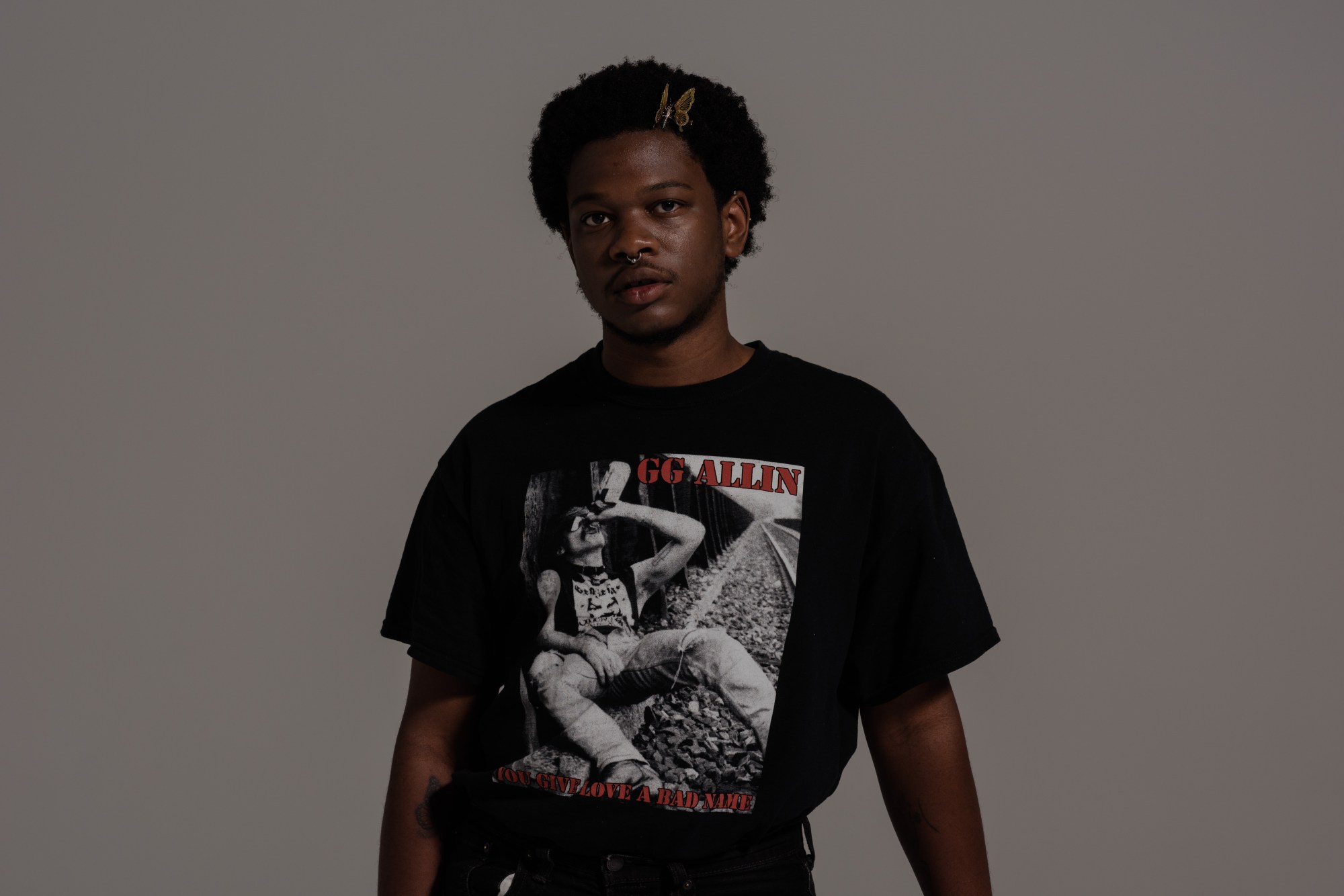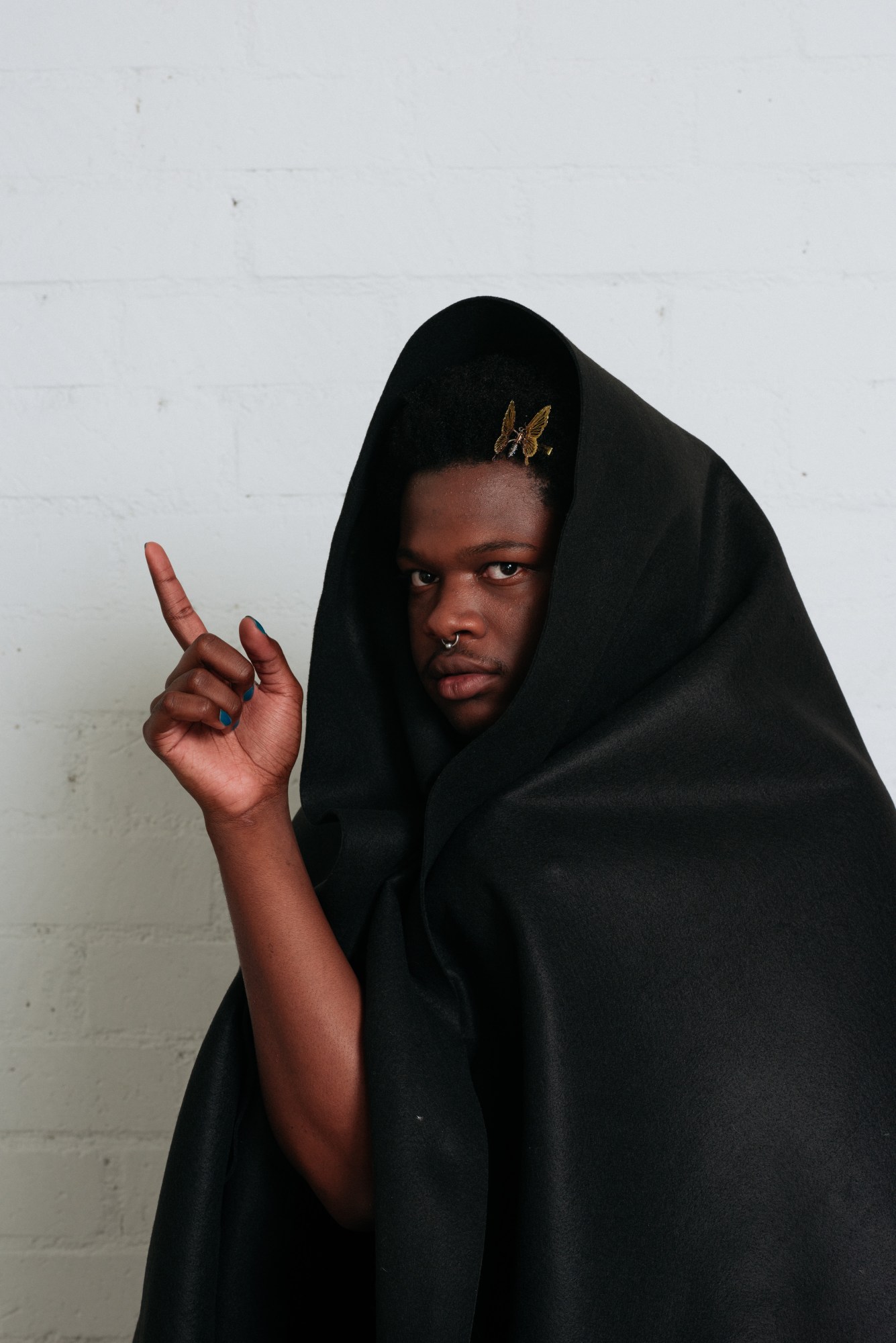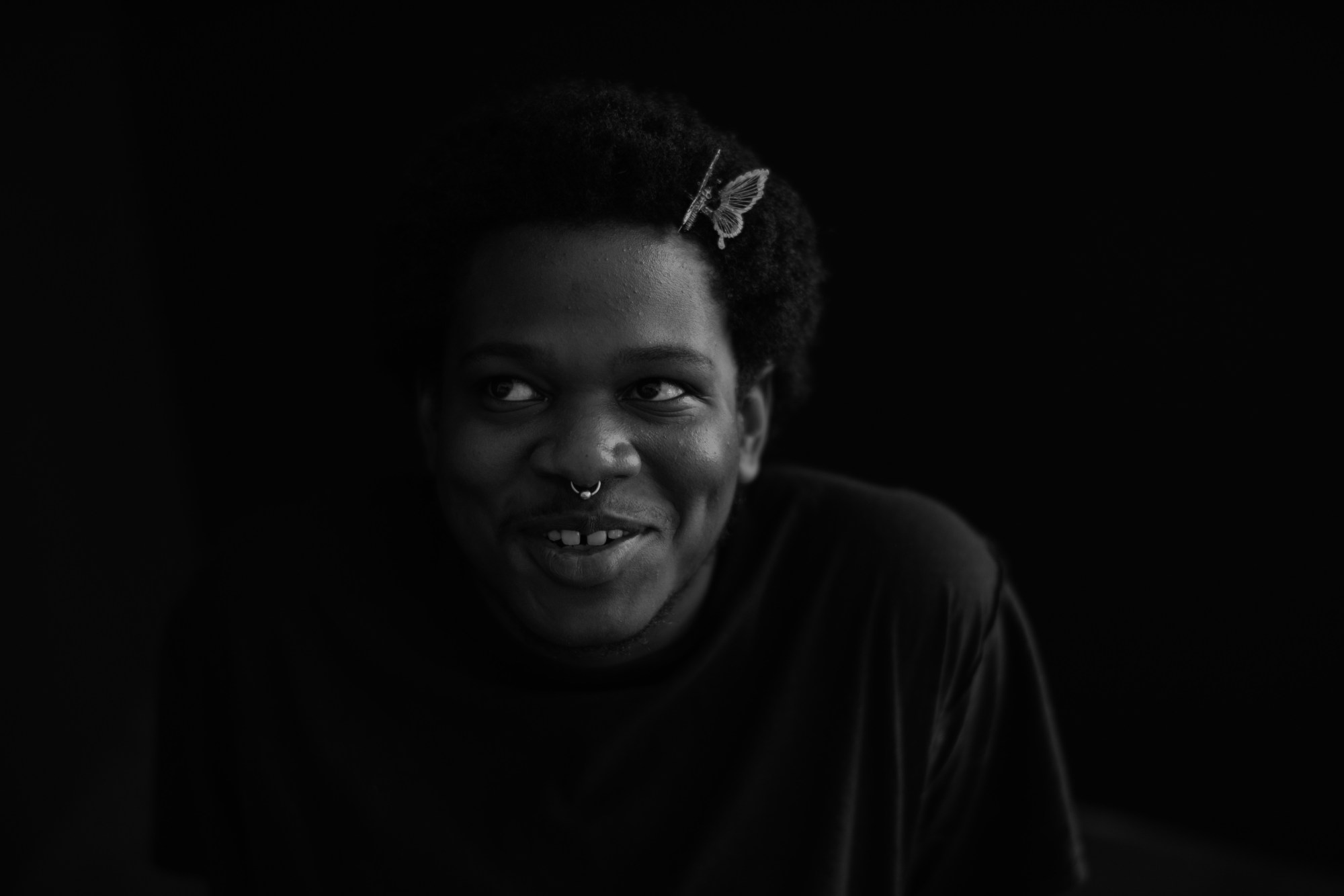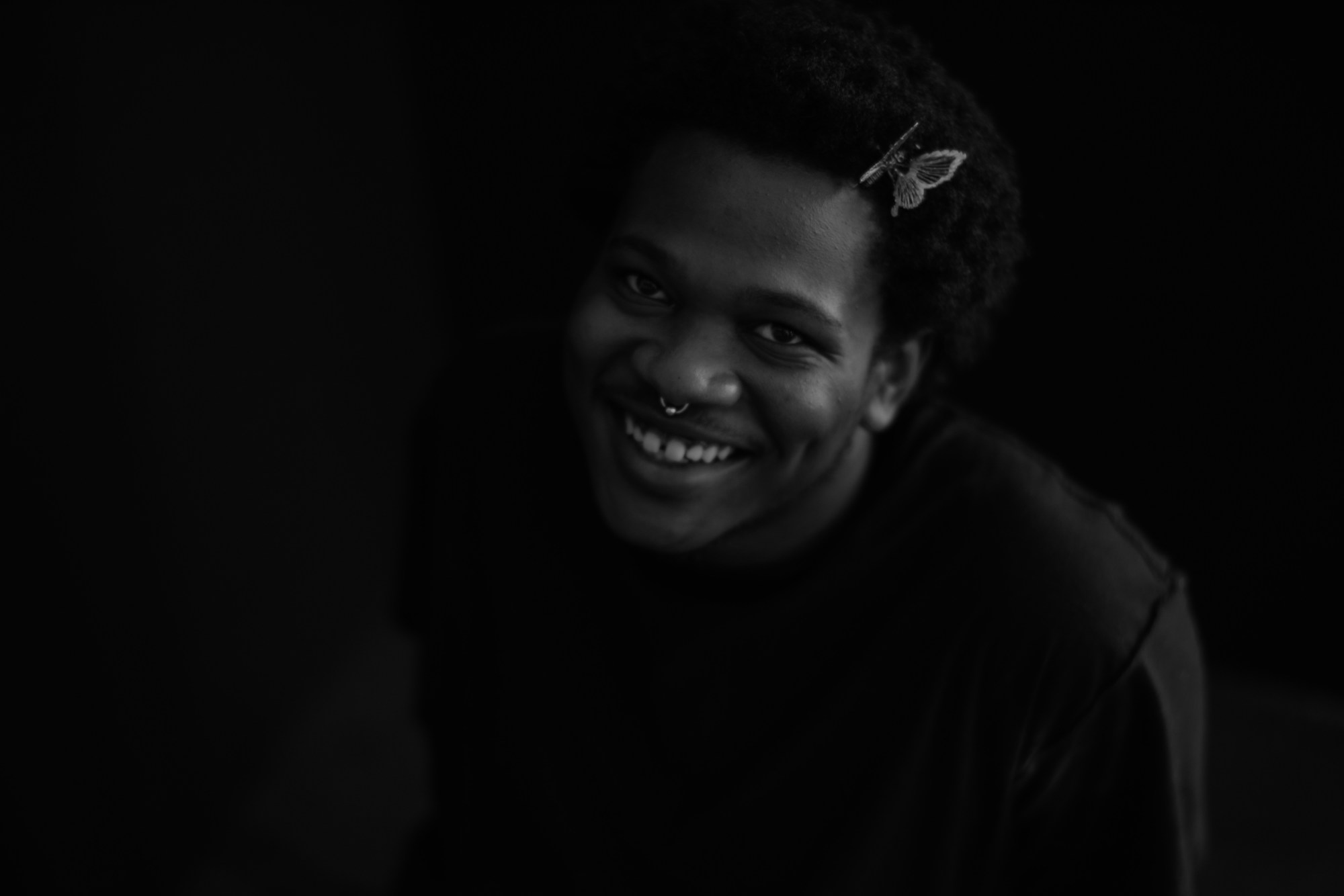It’s World Mental Health day and I’m calling Shamir for a chat about his new album Revelations. That we’re talking on this particular day is pretty apt considering everything that’s been happening on planet Shamir over the past year. Dropped by his former label XL, picked up by his new label Father/Daughter, surprise releasing a self-recorded album called Hope made in a single weekend, followed by a psychotic episode that led to a five day stint in a psychiatric hospital and Shamir’s eventual diagnoses with bipolar disorder. It’s a lot to process, but Shamir is still here, still making music, still fighting the good fight.
“I was literally hours out of the psyche ward when I started writing this record and so much had happened in such a short period of time. I made Hope and then two weeks later I had my psychotic episode, which was really scary and nearly took my life, and then I wake up in the hospital and don’t know where I am or what happened and then I’m in Vegas literally all within a two week period.”

Thankfully Shamir says he’s now living a healthier life than ever before. We talk about the balancing act of mental health and how stress and his chronic insomnia have been a trigger for him. “If I can’t do something, instead of forcing myself or overexerting myself I take time out and if anything’s wrong I just hold my hands up and say, ‘I can’t handle this right now.’ That’s been a big thing for me.” What’s his advice for people going through something similar? “The main thing is noticing irregularities and imbalances, stay really in tune with yourself and your body and don’t be afraid to seek help and don’t put it off. One thing I did is put it off — it can wait, it can wait, it can wait. Don’t let the stigma deter you. I think it’s normal to seek professional help, I have an amazing psychiatrist and therapist and they’ve helped me stay balanced.”
Being able to name the problem and explain to others what it means can help ward off being dismissed as just not coping, not being strong — but as Shamir points out, that lack of understanding shouldn’t occur in the first place. “You should never make anyone feel bad for not being able to do certain social things. That was one of the problems I had with my condition, I used to feel bad and you have to do what’s right for you no matter what. Your real friends and real people will understand.”

In hindsight it’s easy to see how Shamir’s pretty instant success with debut album Ratchet and its infectious lead track On the Regular could have set him on a problematic crash course. For starters, even though he wrote all the songs on Ratchet, its bouncy beats were a huge departure from the country-inspired guitar tunes he had been penning up until then. Shamir credits Taylor Swift for making him want to write country music. “I just remember being like 12 and seeing old Taylor Swift sing songs with her rhinestone guitar, and thinking I just want to do that.” Ultimately, Shamir describes Ratchet as more of a “collab record” with producer and former manager Nick Sylvester.
“I didn’t think my first record out the gate would do what it did. You think in your head, this is just an experiment, and when it takes over it’s like, ‘what have I done?’ [laughs] The experiment has got out of hand. Electronic music was not my roots at all. I got a hand-me-down drum machine and decided to experiment with that literally months before I released my first EP. It’s crazy how fast something can take on a life of its own.”

No longer wanting to exclusively be the Ratchet Shamir — which he says is for sure a part of him but definitely not his default — his label seemed to want, XL and Shamir mutually decided to part ways. “There’s definitely not any hard feelings. If anything, I’m blessed that it happened because I would have been a lot more unhappy if I was stuck in a contract doing things that I didn’t want to do. Being dropped has given me a fresh start.”
That fresh start was Hope, the downbeat and lo-fi surprise album that he wrote in one weekend and self-released via SoundCloud. It began to process Shamir’s experience of becoming what he describes as an “accidental pop star”, thrust into the spotlight at 19. However well-meaning and celebratory most of the press surrounding him has been, having your identity picked apart publicly in your teens while being lorded as the poster child for progressive race, gender and identity politics must have been a mad amount of pressure. “It was really frustrating a lot of times, I wanted to talk about the music and people wanted to talk about my identity and my sexuality and make me the face of gender-queer people, because at the time there wasn’t nearly as much exposure of non-binary and trans artists,” he explains “It was very hard. My identity isn’t an anomaly. I’m so glad I was able to be a representation. It’s just that with a lot of media it’s not always celebrating, sometimes it’s exploiting, it’s a thin line between the two.”

Shamir calls his new album Revelations a sister album to Hope because the former happened in a “hanging by a thread situation”, while the later is the result of that thread breaking and “hitting that rock bottom and learning from it”. The guitar-based songs on Revelations range from the anthemic 90s Kids to album opener Games, on which Shamir’s countertenor vocal probably pushes the limits of what most people would call listenable. His favourite lyric on the record is from intimate standout track Float and goes like this: “I’m done trying to conform / I reached my final form / and I pray the lord have mercy on whoever takes me on.” It’s a personal album that’s full of pent-up energy and confrontation, from its startling cover artwork that features an image of a mouth and eyeless Shamir, to its closing track Straight Boy.
“It’s mostly about toxic masculinity and how sometimes the term ‘straight’ can refer to being more closed-minded as opposed to just a preference,” Shamir explains. “Like straight boys in the industry having a hand in every part of me and [my] music and my image and releasing my music, and I turn around and there’s no queer people around me. How can all these straight people take part in something they don’t even fully understand and didn’t take the time to fully understand?”

That sentiment resonates with the political landscape of America, now more than ever, as those who haven’t been faced with the reality of marginalisation are seeing what that really means for those who are, and are shocked. Shamir concurs. “This is not brand new for people of colour, this is not brand new for me. So now there are white people who are like, ‘Oh this is problematic, this is not the America we live in,’ and it’s just like, umm hello this has been the America for people of colour and disenfranchised people and we’ve been telling you that, you just thought we were complaining or some other shit. I’m constantly doing what I can do and this has been an everyday fight for me my whole life.”
Shamir says we might get a full-blown country album out of him one day, it’s just that he’s got so much angst built up and it’s “hard to be angsty with country music”, but that’s ok because we’re so here for angsty Shamir.
Revelations is out on 3 November via Father/Daughter Records.
